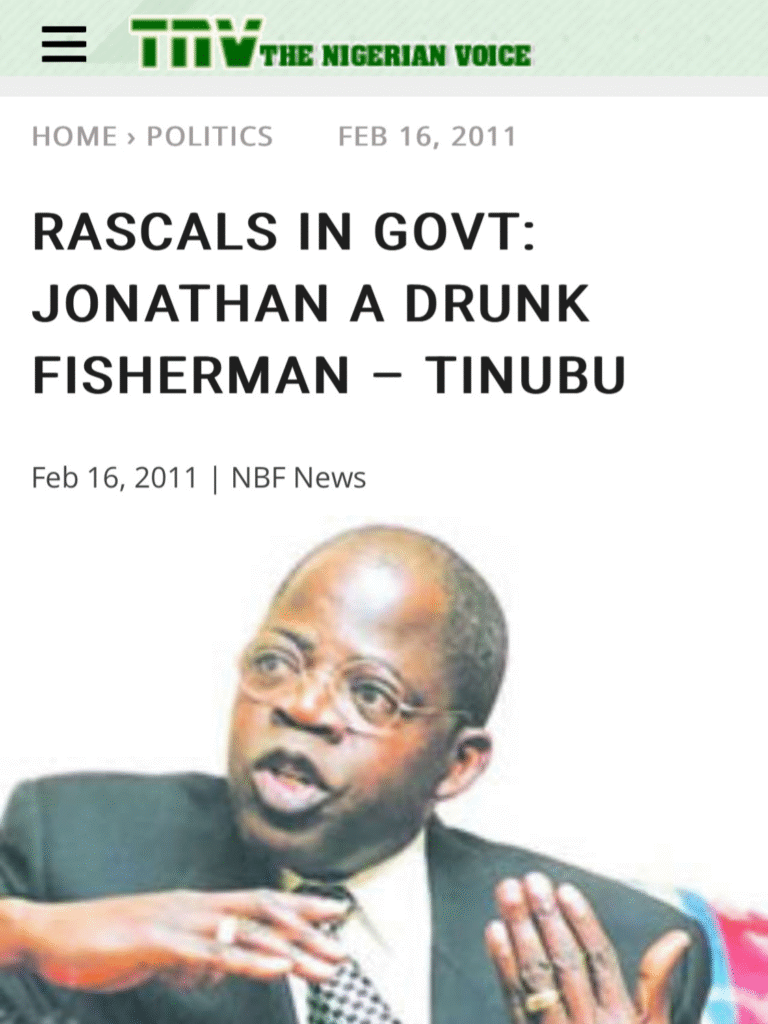Political Controversies in Nigeria: Tinubu vs. Jonathan and the DSS’s Action
Tinubu’s Strong Words against Jonathan
In February 2011, Bola Tinubu, a notable figure in Nigerian politics and a chieftain of the defunct Action Congress of Nigeria (ACN), made headlines by criticizing then-President Goodluck Jonathan. Tinubu labeled Jonathan a “drunkard and sinking fisherman,” an insult that emphasized his disapproval of Jonathan’s leadership.
Jonathan’s Presidency and Its Challenges
Goodluck Jonathan served as the President of Nigeria from 2010 until 2015. His tenure faced various challenges, including significant political opposition. Ultimately, he lost the 2015 presidential election to Muhammadu Buhari, marking a notable shift in Nigeria’s political landscape.
Tinubu’s Remarks Regarding Leadership
During an interaction with journalists, Tinubu expanded on his critique of Jonathan, stating, “I think the president is wrong because that is an insult to our parents. It is a speech from a drunk sailor fisherman whose boat is about to capsize,” as reported by the Nigerian Voice. This remark showcased his intense dissatisfaction with Jonathan’s governance.
Controversial Statements Against Obasanjo
Fast forward to February 2019, Tinubu was vocal again during the All Progressives Congress presidential campaign rally at Teslim Balogun Stadium in Lagos. He urged Nigerians to disregard former President Olusegun Obasanjo, calling him “the greatest election rigger in this country” and suggesting that he be “dumped in the dustbin.” This statement further fueled discussions around electoral integrity in Nigeria.
DSS Takes Action Against Sowore’s Allegations
Recently, controversy has erupted involving activist Omoyele Sowore, who made allegations against President Tinubu. The Department of State Services (DSS) sought action against Sowore for a tweet in which he labeled the President a “criminal.” The DSS argued that this statement constituted hate speech and posed a threat to national security.
Legal Challenge by Omoyele Sowore
In response to the DSS’s demands, Sowore’s legal team has pushed back, arguing that the request to delete his post and deactivate his account is “unlawful and unconstitutional.” They cited Section 39(1) of the 1999 Constitution of the Federal Republic of Nigeria, which guarantees the right to freedom of expression.
Implications for Free Speech in Nigeria
The ongoing disputes involving Tinubu, Jonathan, and Sowore underscore significant issues regarding freedom of expression in Nigeria. The legal team representing Sowore has also referenced past judicial precedents to stress the importance of safeguarding free speech against government overreach.
